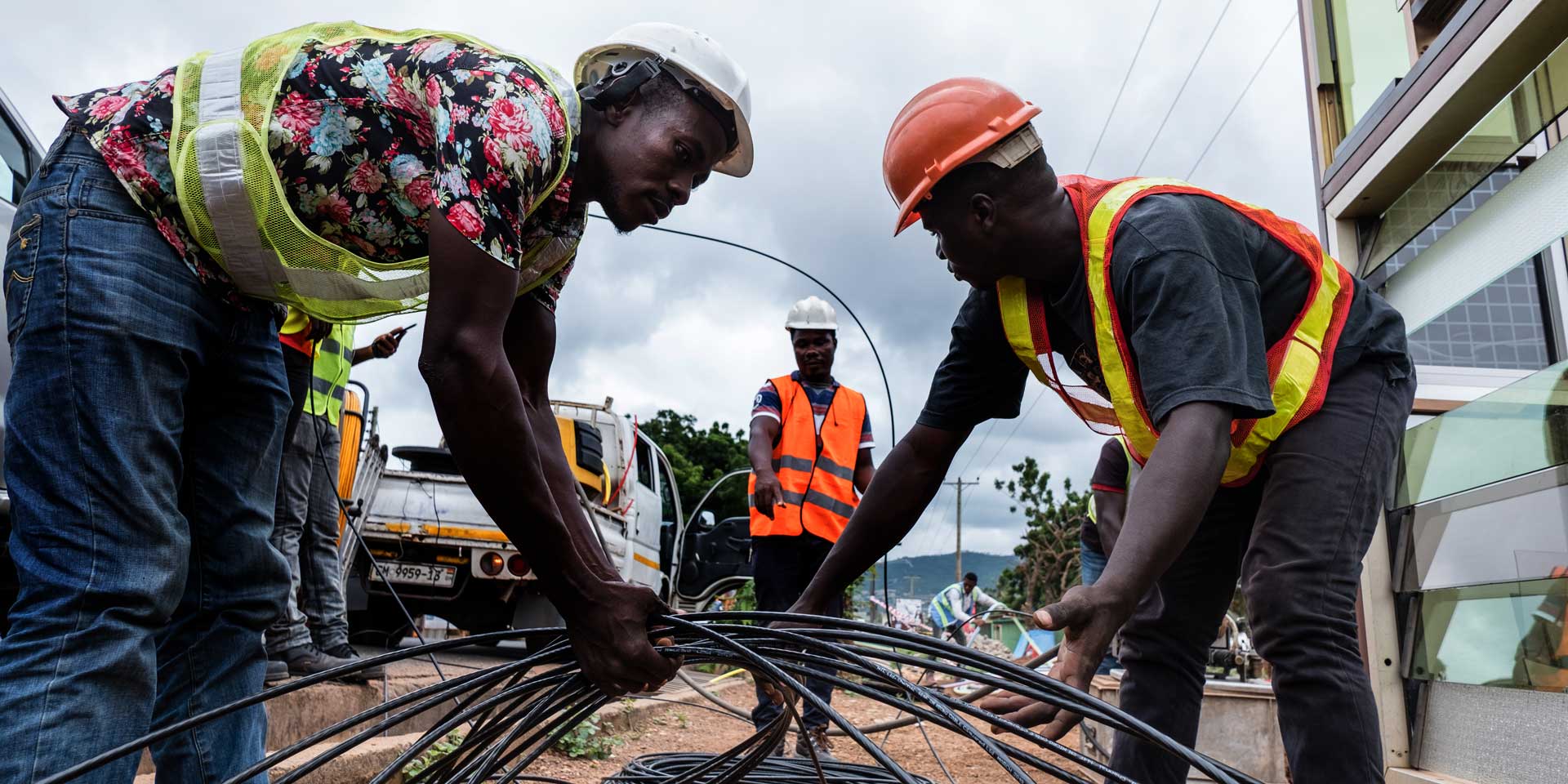IHS Towers, Africa’s largest tower company, and WIOCC, a global telecom infrastructure provider, are in talks with the Lagos State Government to complete its 6,000km fiber duct project. The companies will also extend the project to 36,000km, said Olatunbosun Alake, the Lagos State Commissioner for Science and Technology.
The initial fiber duct project, which kicked off in 2020, was delayed due to contractual disputes between Lagos State and the contractor, Western Telecoms and Engineering Services Limited.
Alake declined to comment on the specifics of the disagreement.
“The department handling the project is not under my ministry, but there are plans to relocate them to the Ministry of Science and Technology,” he said.
Western Telecoms had previously laid 2,700km of fiber duct and cables between 2020 and 2022. The company secured connectivity deals with major telecom operators, including MTN Nigeria, Airtel, Liquid Telecom, MainOne, Dolphin Telecoms, Swift, and Spectranet. Over 1,000 MTN and Airtel base station sites were successfully connected to the fiber infrastructure.
However, the project failed to meet its 2023 deadline for completion.
Fidelity Bank and other financial institutions provided the initial funding for the 6000km project, estimated to cost $200 million. Alake did not disclose the cost of the expansion which will be funded by WIOCC and IHS.
A WIOCC spokesperson confirmed the talks but declined to comment on the financial commitments involved.
IHS did not immediately respond to requests for comments.
Home to over 521 startups and headquarters of different multinationals, improving internet quality is vital for the economic growth of Lagos. However, with only 7,864.50 km of fibre deployed out of the needed 36,000 km, high-speed internet remains a challenge. The state aims to attract more investment using fibre ducts to protect the infrastructure.
The Lagos State fiber duct project is part of a broader “Dig-Once” policy launched in 2020 to solve inconsistent fiber deployment by telecom and utility companies.
Frequent vandalism of fibre cables and cuts from road construction have plagued the existing network. With the dig-once framework in place, construction workers in the state can avoid damaging fiber installations, enhancing the reliability of telecom services.
Popular in regions like the Eurozone and the U.S., and gaining traction in emerging markets, dig-once policy aims to install robust, long-lasting ducts that protect fiber cables. Fiber cables typically last 20 to 25 years, but the ducts themselves can endure for 25 to 50 years, providing a cost-effective and sustainable solution for future infrastructure.
Lagos is not alone in embracing the dig-once policy. Osun State, the Federal Capital Territory (FCT), and Cross River State have adopted similar strategies.
For Alake, the time is ticking as the project needs to be delivered by 2027 when the current administration leaves office.



















